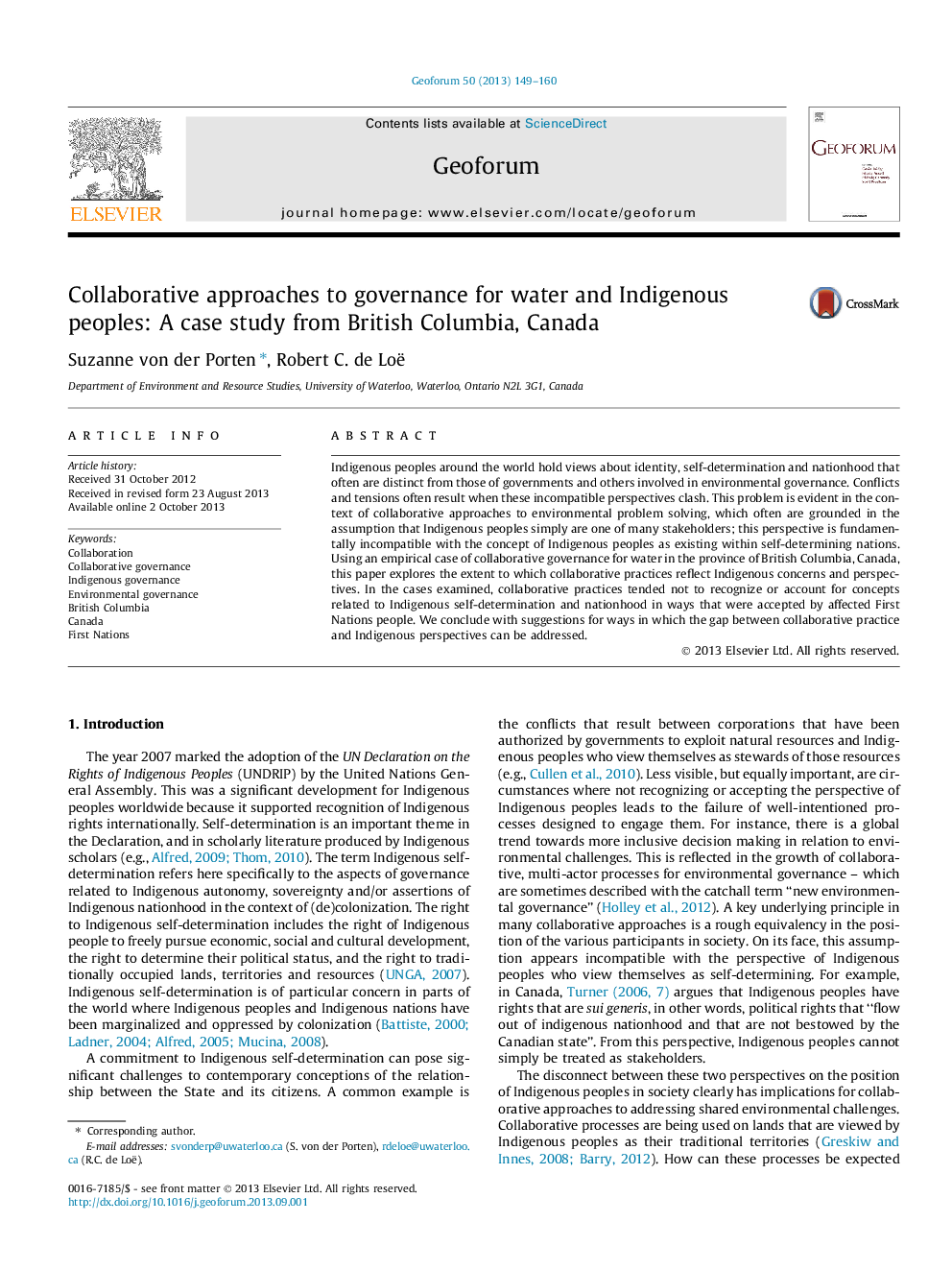| Article ID | Journal | Published Year | Pages | File Type |
|---|---|---|---|---|
| 5074128 | Geoforum | 2013 | 12 Pages |
Abstract
Indigenous peoples around the world hold views about identity, self-determination and nationhood that often are distinct from those of governments and others involved in environmental governance. Conflicts and tensions often result when these incompatible perspectives clash. This problem is evident in the context of collaborative approaches to environmental problem solving, which often are grounded in the assumption that Indigenous peoples simply are one of many stakeholders; this perspective is fundamentally incompatible with the concept of Indigenous peoples as existing within self-determining nations. Using an empirical case of collaborative governance for water in the province of British Columbia, Canada, this paper explores the extent to which collaborative practices reflect Indigenous concerns and perspectives. In the cases examined, collaborative practices tended not to recognize or account for concepts related to Indigenous self-determination and nationhood in ways that were accepted by affected First Nations people. We conclude with suggestions for ways in which the gap between collaborative practice and Indigenous perspectives can be addressed.
Keywords
Related Topics
Social Sciences and Humanities
Economics, Econometrics and Finance
Economics and Econometrics
Authors
Suzanne von der Porten, Robert C. de Loë,
